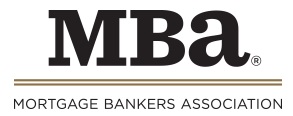WASHINGTON, D.C. – May 25, 2011 – (RealEstateRama) — Michael D. Berman, CMB, Chairman of the Mortgage Bankers Association, testified today before the U.S. House of Representatives Financial Services Subcommittee on Insurance, Housing and Community Opportunity at a hearing entitled “Legislative Proposals to Determine the Future Role of FHA, RHS and GNMA in the Single-and Multi-Family Mortgage Markets.”
Below is Mr. Berman’s oral statement before the subcommittee, as prepared for delivery.
“Thank you Chairwoman Biggert. FHA is at an important crossroads today and this hearing, occurring in the midst of efforts to reshape our housing finance system, is especially timely.
“A few years ago, a growing number of voices were asking whether there was still a need for FHA, or if the private market could fully absorb its functions. MBA never wavered in its support for the critical mission FHA performs and the last few years have underscored this point many times over. Today, FHA is performing its traditional counter-cyclical role, increasing its market share from 3 to 30 percent and providing necessary liquidity to our otherwise frozen housing finance sector. In doing so, it is ensuring access to safe mortgage products, helping homeowners refinance into more affordable interest rates, and supporting the growing need for decent affordable rental housing.
“We should all be grateful FHA is here today and this subcommittee deserves recognition for the bipartisan focus it has put on FHA. Recent Congresses have made important changes to loan limits, given FHA more flexibility to set insurance premiums, eliminated the failed seller-funded downpayment assistance program, and provided FHA with additional staffing and technology upgrades.
“Thanks to your efforts, FHA is not only serving an expanded segment of the market during this economic downturn, but doing so while remaining in the black – an amazing feat considering the impacts the foreclosure crisis has had on other market participants.
“While MBA’s full recommendations are in our submitted statement, I would like to highlight the effects of two pending proposals on FHA.
“First, MBA’s members are deeply concerned with the proposed risk retention rule, its narrowly written exemption for qualified residential mortgages, and the ultimate effect it will have on FHA.
“The proposed QRM definition appears to conflict directly with the Obama administration’s preference for shrinking FHA from its current role of financing one-third of all mortgages. It is not at all clear whether regulators reflected on the relationship between the proposed QRM definition and FHA’s eligibility requirements in light of FHA’s exemption from risk retention.
“By making it even more difficult for private capital to re-enter the housing finance market, the QRM rule would lead to FHA being flooded with more, not fewer, loans. And while FHA has an important role to play, MBA firmly believes that it is not in the public interest for a government insurance program to dominate the market.
“One of our primary concerns about the proposed QRM rule is the overemphasis on downpayment as an indicator of a risky loan. Likewise, we have similar apprehension about legislation to raise FHA’s minimum downpayment to 5 percent.
“We should not be placing such a high emphasis on just one factor in determining a loan product’s overall risk. While downpayment has an impact on default, other factors, including full documentation of income and borrower credit, can mitigate this risk. In fact, it’s FHA’s requirement of full documentation of all loans and its limited product options that helped insulate it from experiencing a more devastating default rate during the height of the housing crisis.
“MBA’s most recent National Delinquency Survey, which we released last week, drives this point home. This data found that for the first quarter of 2011, the FHA delinquency rate is down a full percentage point relative to last year, and the foreclosure start rate is down about 50 basis points.
“Policymakers need to carefully weigh their desire to decrease risk by raising minimum downpayments versus the certain and dramatic negative impact such a change would have on the availability of loans to low-to-moderate, first-time, and minority homebuyers.
“I would also like to touch on proposals to lower FHA’s loan limits. Intense focus has been placed on the narrow slice of loans made at the high end of the spectrum. MBA understands that the maximum loan limits are likely to go down to $625,000 on October 1, but we think it would be a mistake to also lower the limits in low-cost areas where FHA does most of its business.
“The average new FHA loan is about $190,000. In places like Texas, Georgia, and North Carolina, reducing or eliminating FHA’s floor of $271,000 would drastically deny access to credit for many otherwise qualified lower and middle class borrowers. We need to be very cautious in enacting these proposals, given the continued weak state of the housing market.
“Finally, as a multifamily lender, I would note that FHA’s statutory limits for multifamily housing are severely restricting the ability of rental property owners in urban markets to use FHA insurance programs. These limits can have an especially adverse effect on seniors and should be addressed by Congress.
“Further, given the backlog of loans in the FHA multifamily arena, it is important that Congress encourage FHA to create operational efficiencies without political constraints.
###
The Mortgage Bankers Association (MBA) is the national association representing the real estate finance industry, an industry that employs more than 280,000 people in virtually every community in the country. Headquartered in Washington, D.C., the association works to ensure the continued strength of the nation’s residential and commercial real estate markets; to expand homeownership and extend access to affordable housing to all Americans. MBA promotes fair and ethical lending practices and fosters professional excellence among real estate finance employees through a wide range of educational programs and a variety of publications. Its membership of over 2,200 companies includes all elements of real estate finance: mortgage companies, mortgage brokers, commercial banks, thrifts, Wall Street conduits, life insurance companies and others in the mortgage lending field. For additional information, visit MBA’s Web site: www.mortgagebankers.org.











